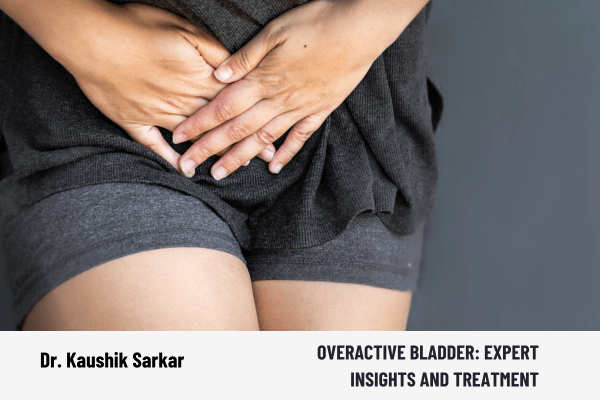An overactive bladder (OAB) is a common urological condition that can significantly impact an individual’s quality of life. As the best urologist in Kolkata, I’m here to shed light on OAB, its causes, symptoms, and potential treatments to help those affected better manage this condition.
Understanding Overactive Bladder (OAB):
OAB is characterized by a sudden and frequent urge to urinate, often resulting in urinary incontinence. It can affect people of all ages but is more prevalent among the elderly. Several factors contribute to OAB, including:
- Muscle Overactivity: The detrusor muscle, responsible for bladder contractions, becomes overactive, causing the frequent urge to urinate.
- Nerve Problems: Conditions like nerve damage or neurological disorders can disrupt the brain-bladder communication, leading to OAB.
Common Symptoms:
OAB can manifest with various symptoms, including:
- Urgency: A sudden, compelling need to urinate that’s difficult to control.
- Frequency: Urinating more often than usual, typically eight or more times a day.
- Nocturia: Waking up multiple times at night to urinate.
- Urge Incontinence: Accidental leakage of urine following a strong urge to urinate.
Management and Treatment:
The good news is that OAB can be effectively managed and treated. Options include:
- Lifestyle Modifications: Dietary changes, pelvic floor exercises, and fluid management can help reduce OAB symptoms.
- Medications: Certain medications can relax the bladder or block nerve signals that cause urgency.
- Bladder Training: This involves gradually increasing the time between bathroom visits, helping improve bladder control.
- Surgery: In rare cases, surgical procedures may be considered if other treatments are ineffective.
Conclusion:
As the best urologist in Kolkata, I encourage anyone experiencing symptoms of OAB to seek professional evaluation and guidance. With the right approach, OAB can be effectively managed, allowing individuals to regain control of their bladder and improve their overall quality of life. Don’t let OAB limit your activities or well-being; there are solutions available to help you lead a more comfortable and active life.

